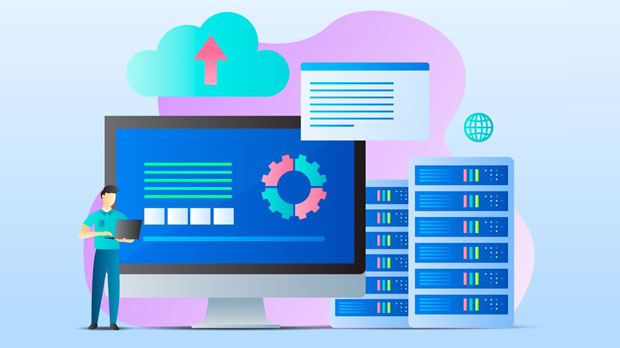Proxy-free, referring to the practice of trading or accessing the internet without using any intermediary server or service, is a concept that many traders might think is beneficial for cryptocurrency trading. However, when it comes to cryptocurrency trading, using a proxy-free approach poses several risks and challenges. While proxies provide anonymity, better access to different regions, and enhanced security for many online activities, in cryptocurrency trading, such methods often compromise crucial factors like security, anonymity, and compliance with regulations. In this article, we will analyze why proxy-free is not an ideal solution for cryptocurrency trading. 1. The Importance of Security in Cryptocurrency TradingCryptocurrency trading platforms deal with highly sensitive information, such as personal data, wallet addresses, and private keys. When engaging in these transactions, security is of paramount importance. Many traders and investors use proxy servers or VPNs (Virtual Private Networks) to secure their connection and prevent unauthorized access to their accounts. Proxy-free trading, however, exposes traders to a variety of security risks.Without a proxy or VPN, the trader’s real IP address is exposed, making them vulnerable to hacking and phishing attacks. Hackers can target traders who use public Wi-Fi or unsecured networks, taking advantage of the lack of encryption or hidden IP addresses. Cryptocurrency exchanges, which are often targeted by cybercriminals, can be a prime target for such attacks.Furthermore, the absence of a proxy means that the trader’s geographical location is easily identifiable. In some regions, cryptocurrency trading may be subject to restrictions or bans. Without the anonymity provided by proxies, traders may inadvertently violate local regulations, resulting in legal consequences.2. Regulatory Compliance and AnonymityAnonymity is crucial in cryptocurrency trading. Many traders use proxies to hide their real location, ensuring they remain compliant with the regulations in their respective jurisdictions. In certain countries, cryptocurrency trading is either heavily regulated or outright illegal. In such cases, traders use proxy servers to appear as if they are located in a jurisdiction where cryptocurrency trading is allowed.A proxy-free connection makes it much easier for authorities to track the trader’s activities. This can lead to exposure to financial institutions, tax authorities, and regulatory bodies. This puts the trader at risk of prosecution, fines, or the freezing of their assets. Without the anonymity offered by proxies, individuals participating in cryptocurrency trading might be subject to scrutiny from the government or legal entities, which could result in serious repercussions for their financial activities.3. Risk of Network Latency and Trading DelaysIn cryptocurrency trading, time is of the essence. Traders often rely on fast execution speeds to take advantage of market fluctuations. Proxy servers, although they may cause some slight delay, typically provide faster, more stable connections when compared to direct, proxy-free connections. Proxy-free trading, on the other hand, could result in network latency, slower load times, and a delay in receiving real-time market data.The cryptocurrency market is volatile, and even a small delay can result in significant losses. Without the protection of proxies or VPNs, traders may experience slower execution times, which can affect their ability to place orders in a timely manner. This could lead to missed opportunities and unnecessary financial losses.4. Geoblocking and Limited Access to Certain MarketsGeoblocking is a common issue in cryptocurrency trading. Certain exchanges limit access to their services based on the trader’s location. In these cases, traders may use proxies to bypass regional restrictions and access exchanges that are otherwise unavailable in their country. Without proxies, traders may find themselves unable to access certain platforms, which limits their trading opportunities.Proxy-free trading often forces traders into regions where their trading options are restricted. For example, many exchanges in the United States restrict access to certain coins or trading pairs based on regional laws. In such situations, a proxy allows traders to appear as though they are located in a jurisdiction with fewer restrictions.Without the ability to use proxies, traders may be forced to operate within the confines of their local laws, which can limit their potential profits or restrict access to some of the best trading platforms. Additionally, some cryptocurrency platforms offer better liquidity or lower fees in specific regions, and proxy-free trading prevents access to these advantages.5. Vulnerability to Data Leaks and Privacy ConcernsThe privacy of cryptocurrency traders is another important consideration when discussing proxy-free trading. Proxy servers help hide the user's IP address and encrypt their data, making it more difficult for third parties to monitor their activities. However, in a proxy-free environment, there is a higher risk of exposing sensitive data.Cryptocurrency traders handle large sums of money, making them a target for cybercriminals. If a trader’s IP address and other identifying information are exposed without the use of a proxy or VPN, their activities can be tracked, and personal data can be leaked. This can lead to identity theft or unauthorized access to their accounts. A proxy helps mitigate this risk by masking the trader’s true identity and encrypting their traffic.The lack of privacy in a proxy-free scenario can also discourage potential investors. Many users are reluctant to trade in an environment where their personal information and financial transactions are not adequately protected.6. Mitigating the Risks of Proxy-Free TradingAlthough proxy-free trading is fraught with risks, there are some strategies that traders can employ to mitigate the challenges associated with this approach. For example, using end-to-end encryption for all online communications and transactions is crucial. Additionally, traders should invest in strong security software and ensure their devices are protected from malware and hacking attempts.Traders can also opt for exchanges that have robust security measures in place, such as two-factor authentication (2FA) and insurance against hacks. These exchanges provide a layer of protection that can help reduce the risk of trading without a proxy.While proxy-free trading may seem like a straightforward approach, it is vital for traders to recognize the limitations and risks involved. From security breaches and regulatory compliance issues to slow execution speeds and limited access to markets, the lack of a proxy in cryptocurrency trading can lead to substantial consequences.Proxy-free trading is not ideal for cryptocurrency traders due to the numerous security, regulatory, and operational challenges it presents. The risks of exposure to hacking, identity theft, and legal consequences are significant when operating without the protection of proxies or VPNs. Additionally, proxy-free trading often results in slower connections, reduced access to global markets, and limited privacy.For traders looking to optimize their trading experience, it is essential to use a proxy or VPN service to ensure security, anonymity, and compliance with local regulations. By protecting their data and ensuring access to global platforms, traders can better navigate the complexities of cryptocurrency trading and reduce the risks associated with this rapidly evolving market.
May 26, 2025



































































